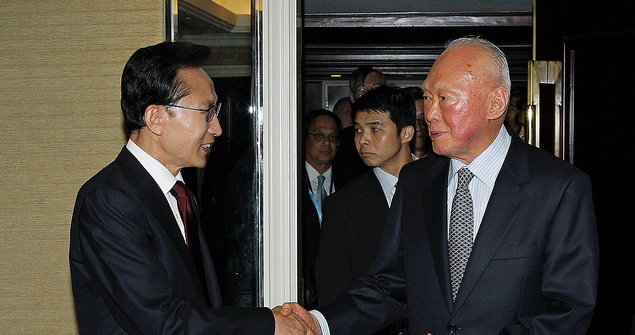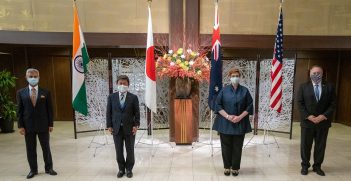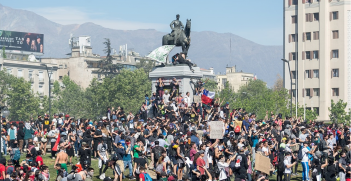Lee Kuan Yew (1923-2015)

The passing of Lee Kuan Yew, widely expected since the Lunar New Year in early February, marks the end of an era in Southeast Asia.
What will be his legacy? Broadly speaking, his legacy will be in two parts- one in economics and another one in politics.
In economics, his legacy is secured. It can best be summed up by the title of his memoirs, “From Third World to First: The Singapore Story – 1965-2000”. When Lee took control of an independent Singapore in 1965 after nearly a decade at chief minister of Singapore, Singapore really had nothing to speak of. Its population, water and food came from Malaya. By the time he stepped down in 1990, Singapore had joined the First World, and the often-used cliché stuck about its economic success- Singapore’s GDP per capita is higher than its colonial master, the United Kingdom (for that matter, Singapore’s per capita is higher than Australia as well).
The success of the Singaporean economy was largely based on the island’s open door policy for top talent from Malaysia, Southeast Asia, and increasingly over the last decade China and India. If you were talented, Singapore was attractive as a good place to work with very low rates of personal income tax. It was the same for multi-nationals. Singapore’s neighbours, who were jealous of its economic success, claim that another important factor in Singapore’s economic success was its ability to attract ‘dirty’ money from the region. It is no coincidence that Singapore is often called the ‘Switzerland of the East’.
The relentless pursuit of talent and money, of course, came with a price. The Gini-coefficient in Singapore became one of the highest in the world, and in the two most recent general elections, one of the key issue was “FT” (Singlish for Foreign Talent). There is real fear among the population that the government’s policy of allowing FTs is crowding out its own citizens, from job opportunities to crowds at MRT stations.
LKY would argue that without the FT Singapore would not be where it is now. But I suspect this argument is losing ground with the generation born after the 1980s. For these young people, Singapore is losing its soul and slowing becoming a ‘rojak’- a mix of so many cultures that there is nothing unique about Singapore anymore. LKY had always referred to Chinese culture as one of his governing pillars and they may no longer be the case in Singapore today.
LKY’s political legacy will be widely disputed. His detractors like the word ‘dictator’ while many leaders in the West prefer the euphemism ‘soft authoritarian’. No doubt his ability to remain in the Western camp (contrary to popular belief, Singapore is probably the US’s strongest ally in Southeast Asia, not the Philippines) while maintaining excellent links with Zhongnanhai means he could get away with almost anything in domestic politics. His suing of his political opponents to bankruptcy is well documented. His detentions without trial of his left-wing opponents never attracted the kind of criticism you would expect from Western governments. The old saying “He may be a son of a bitch, but he’s our son of a bitch” applies here.
Lee’s Singapore Model was rather crude but effective. His ‘social contract’, as understood by the vast majority of Singaporeans, is basically this: PAP government will provide a strong economy and a first-world living standard. Everything will be based on the ruling party’s version of meritocracy. Corruption will not be tolerated.
In return, the average Singaporean must accept a strong degree of control over their lives and not vote the PAP out of power. Opposition members are welcomed in Parliament but they must play by PAP rules and are never in a position to overthrow the PAP.
For the past half-century, this model of authoritarian capitalism appears to have worked. The Chinese think so as well and that is the reason why LKY had direct access to the top Chinese leaders, something that has continued to the present day. It is probably true that some parts of China’s economic reforms were due to the Singapore story.
Given the rising discontent over FT, will this model still work? The PAP share of the popular vote has been going down in the past two successive elections. Do Singaporeans want more democracy (as understood by the West) by replacing the PAP?
I suspect the answer is no. Singaporeans, in many ways, like the PAP as the CEO for Singapore Inc. What they don’t like is PAP using economic rationality for every facet of their lives. For example, they do not understand why medical care and public transport cannot be heavily subsidised by the government. They also think the PAP’s meritocracy ideology favours FT over the locals. They want the PAP to stick to managing the economy and allowing them freedom in the non-economic arenas. In practice this may not be possible in an island-state
No matter what is said about LKY, he was a giant of Southeast Asia.
His real legacy can only be assessed at the end of this century when a response can be found to the real question: Will LKY’s Singapore Model survive the next fifty years? I suspect not. The Singapore Model cannot survive in a globalised world. It is a model suited for a particular time in world history.
Prof James Chin is Director of the Asia Institute at the University of Tasmania. This article can be republished with attribution under a Creative Commons Licence.





